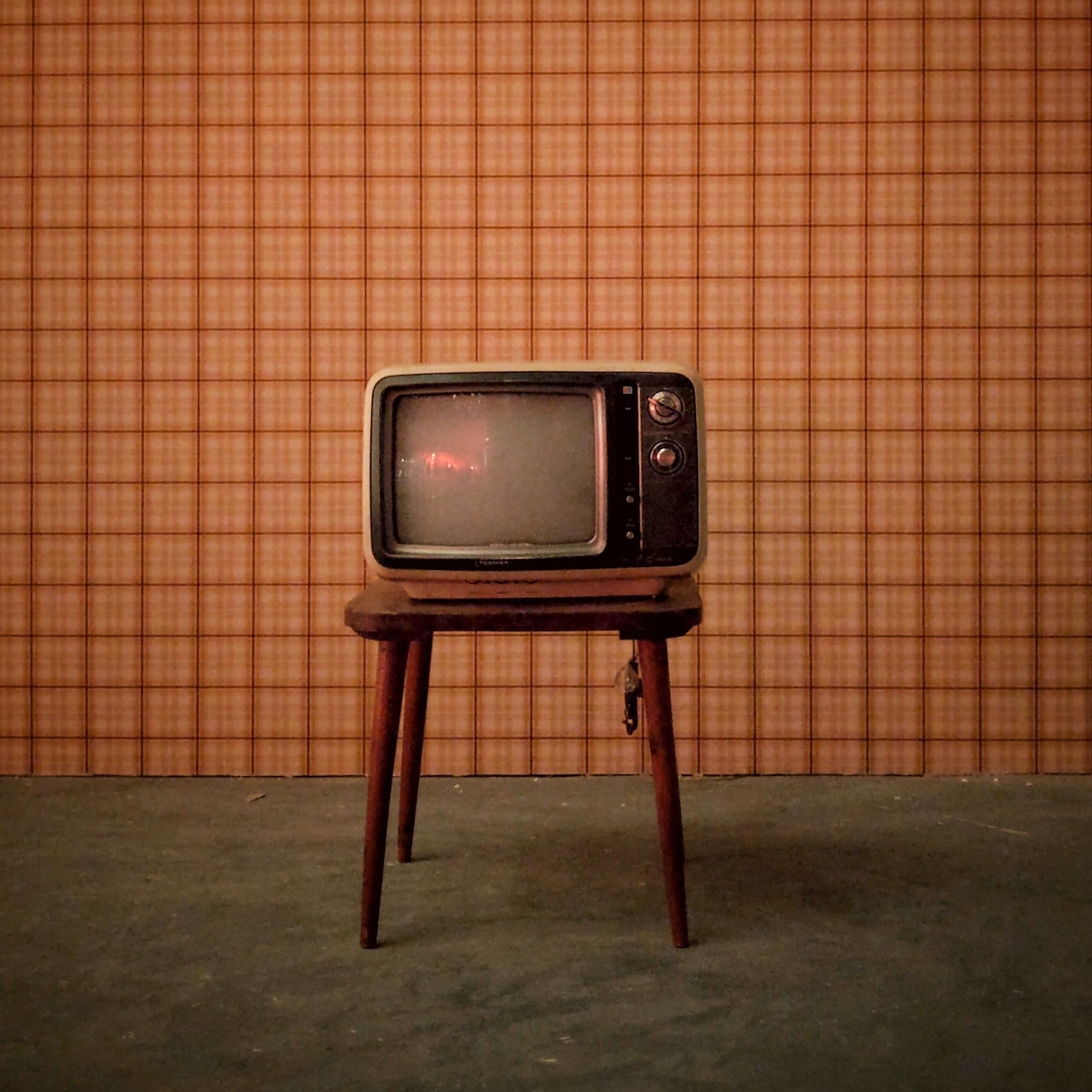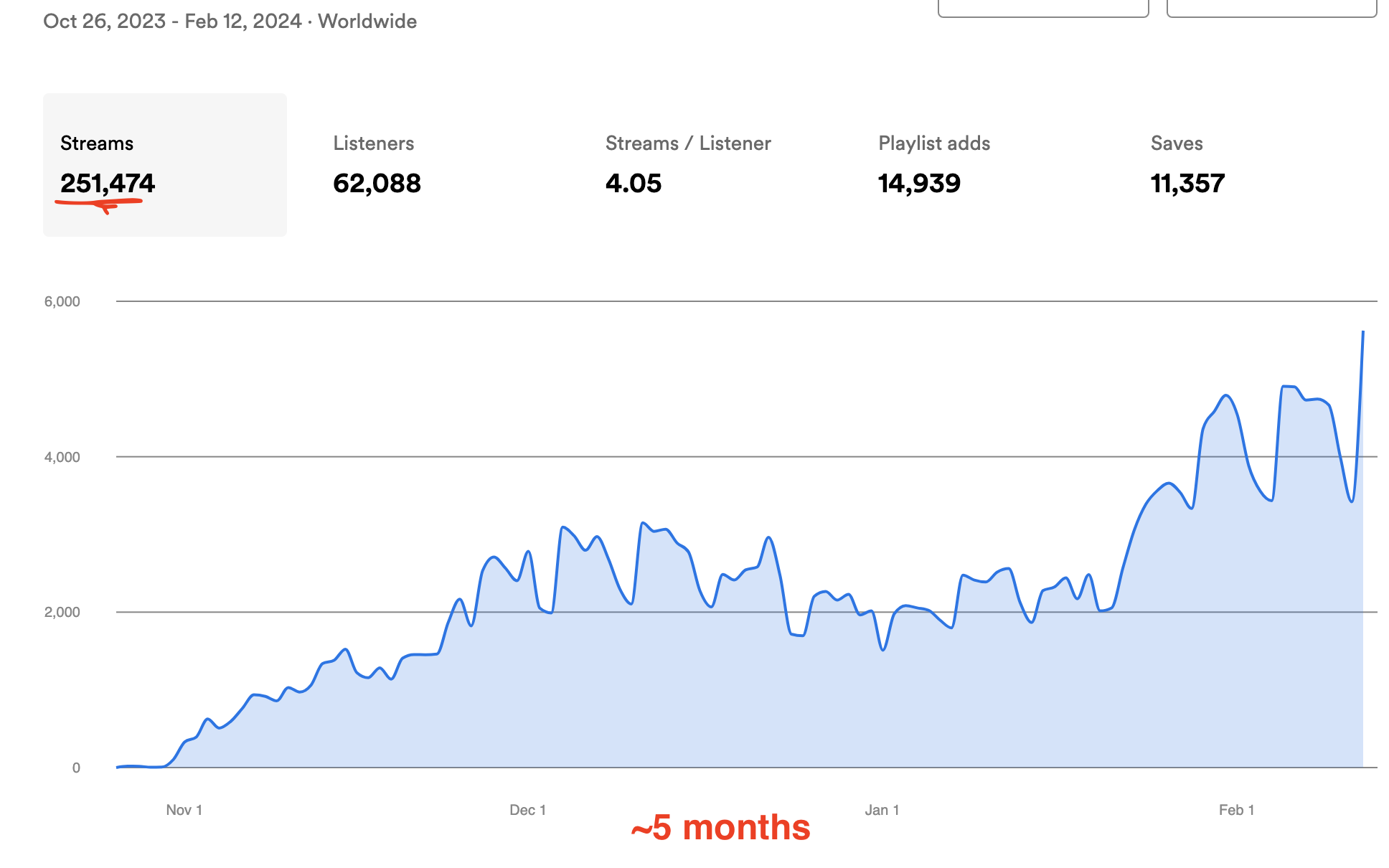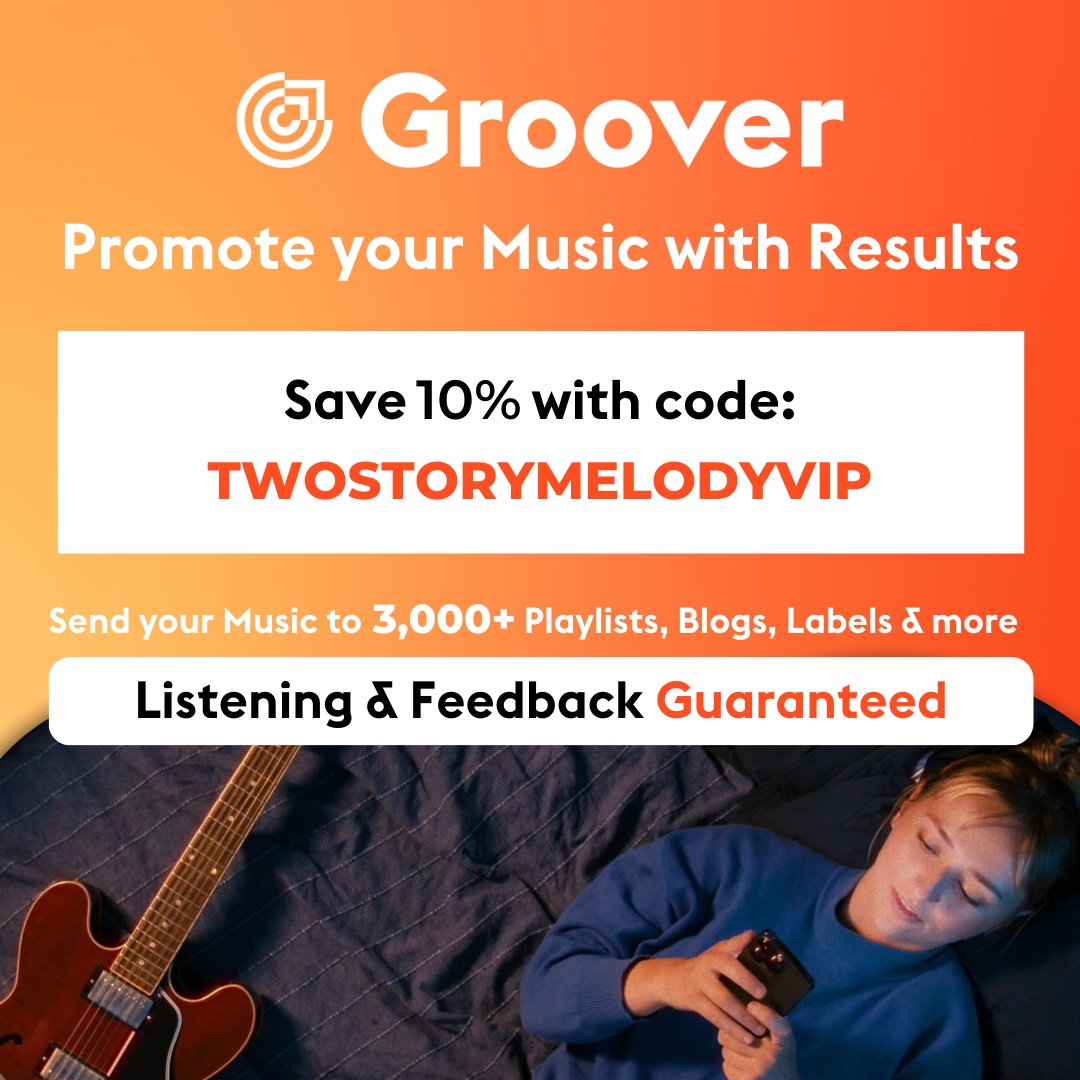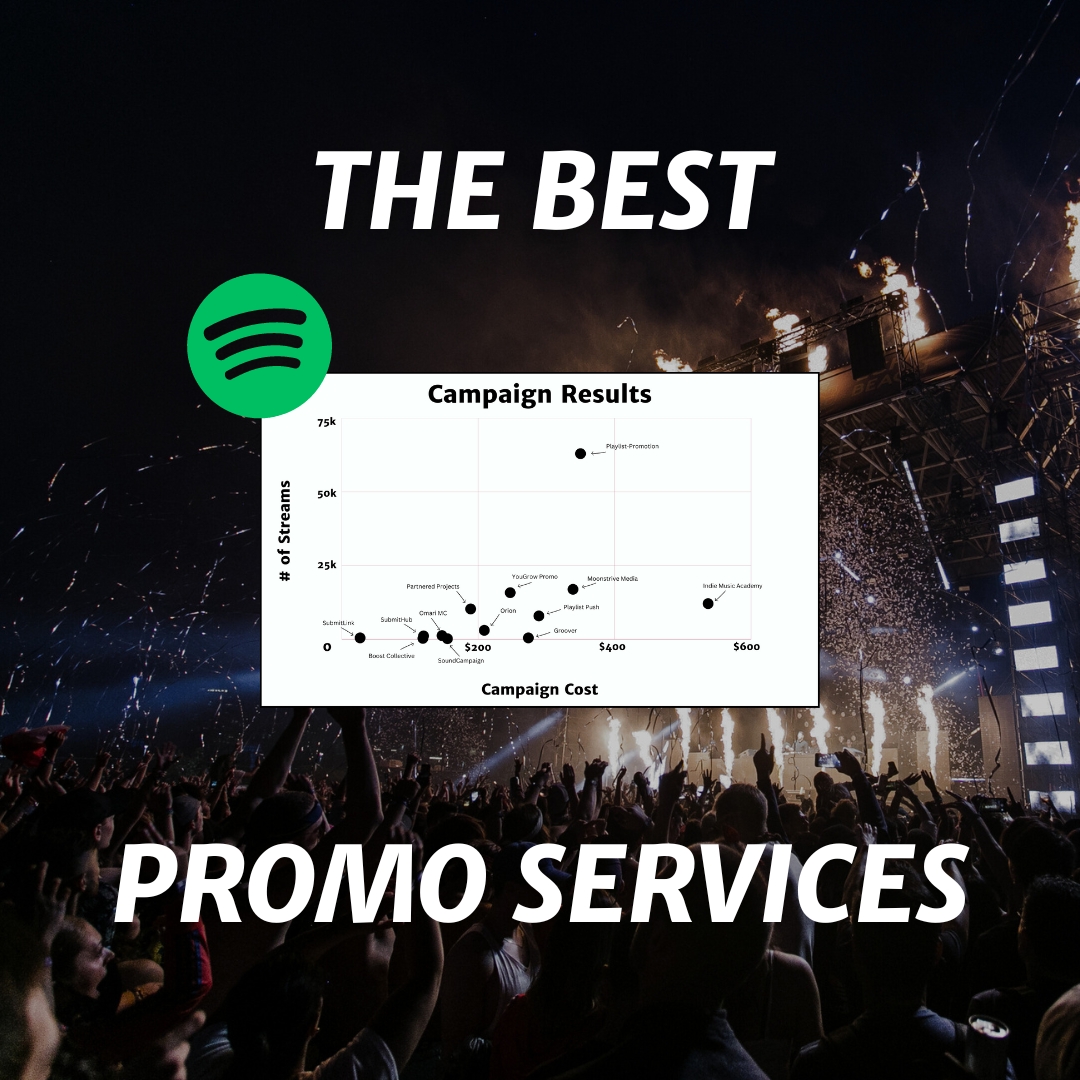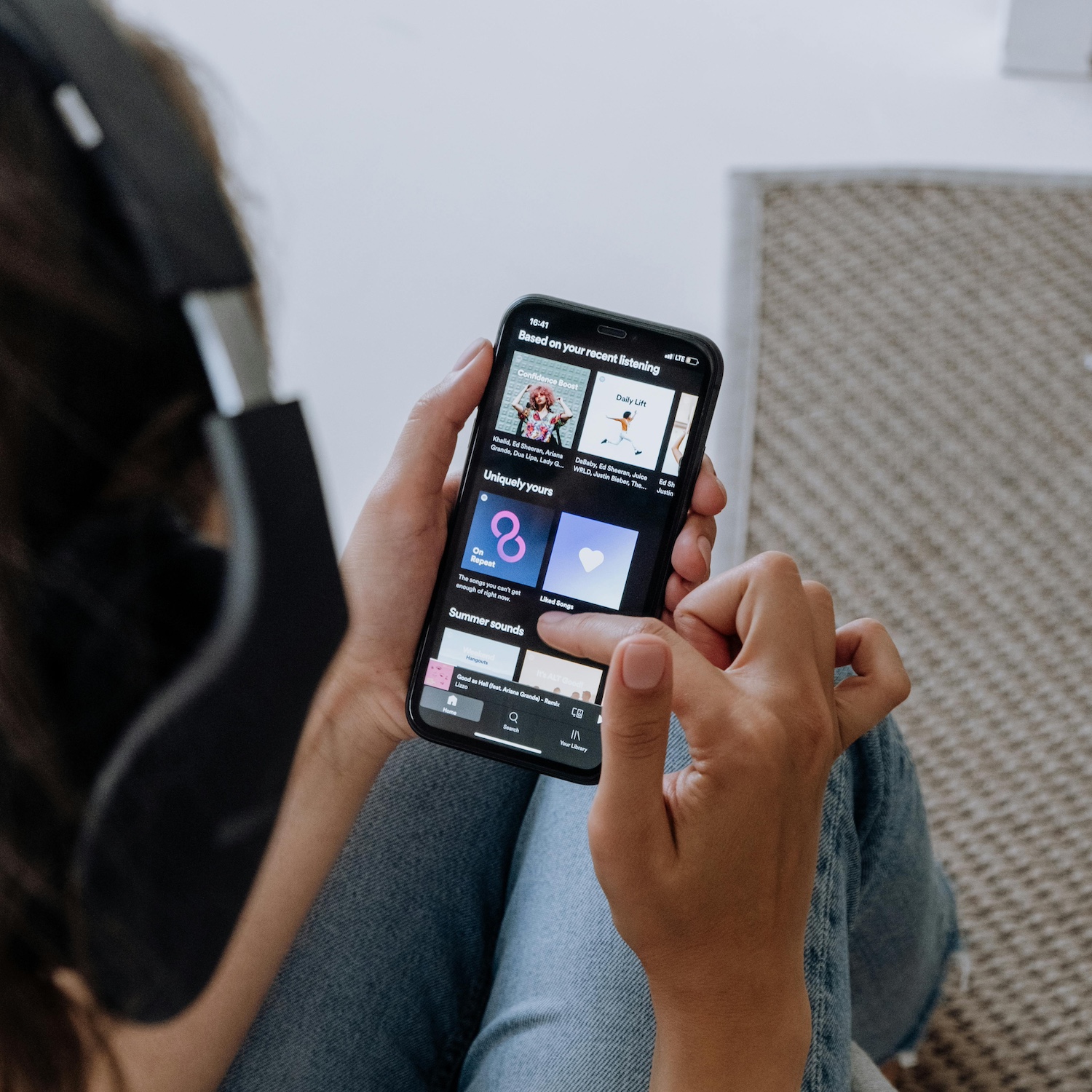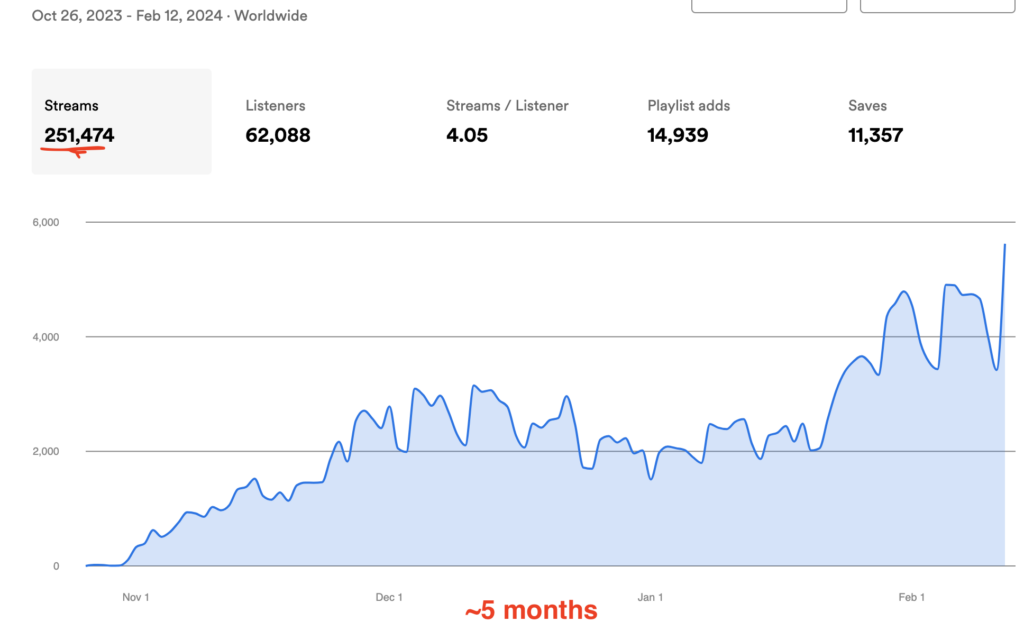Disclaimer: I’m utterly unqualified to talk about this.
I’ve never worked on it myself. I have literally no experience.
But in spite of that, I get asked for advice about it almost every week, probably because I come off as such an incredibly intelligent, helpful, and handsome person according to my mom.
So, with that noted, I figured it’d be worthwhile to share my two cents on…
Sync licensing!
In case you’re unfamiliar with it, sync licensing basically means giving someone the right to add a song to a video; the song is “synchronized” with the video, hence the unimaginative term.
Right, so what’s so exciting about this and why do people keep asking me about it? Three main points:
1. Sync licensing is the way to get your song in TV shows and movies and stuff!
Two decades ago, the stamp that you’d “made it” was to get your song into rotation on mainstream radio. In the 2020s, that doesn’t matter as much – but now we’ve got Netflix soundtracks.
My friend Joel, for example, had a song placed in Marvel’s The Punisher. It was instant validation for him and his fanbase: “Oh good, I’m a smart tastemaker because I supported his Kickstarter,” we all thought in self-congratulation.
Now, there’s some discoverability that comes with big sync placements, for sure. Some people will watch the show, hear your song, like it, search for it online, find you, and fall in love with your artistry forever.
But from what I’ve seen, that’s probably not the main benefit. The main benefit is that you’ll get to feel very cool watching actors do stuff while your music plays in the background.
2. You get paid upfront.
Actually, I lied. This is probably the main benefit: Unlike most other royalties, sync licensing fees are typically delivered upfront. You don’t have to wait till you accrue a million Spotify streams to see a few bucks.
You get paid when you get placed.
And often, the money’s pretty good. If you get a big placement (a major sporting event or a Netflix show or a major studio film), you’re probably looking at thousands or tens of thousands of dollars.
Considering the average musician on this list made $12,200 last year, that’s nothing to scoff at.
3. All of this can happen while you sit at home.
I think this is a big reason I get asked about sync so often: A lot of you aren’t looking to actively tour (which is traditionally the main way most artists make money), so you’re seeking alternative income streams.
Totally makes sense, and sync definitely fits that bill. It’s a great way to make music sustainable if you’d rather not live on the road.
“Yeah yeah, I already knew that I wanted to get into sync,” you’re thinking. “Are you going to tell me how I can actually get placements, or should I just stop reading now?”
Eh, you can probably go ahead and stop reading.
As I told you at the top, I really have zero experience at making sync placements actually happen. But I do have a few thoughts I’ve formed as I’ve watched from the sidelines.
Take these with a grain of salt, but…
1. You should probably work with a sync agent.
Sync agents represent artists to music supervisors (music supervisors are the people whose job it is to get music for a given production).
You can pitch your own music to supervisors, but most of them will ignore you. It’s not because they’re mean people (although, like all of us in the entertainment industry, they are), it’s because they don’t want to run the risk of getting their studio sued for using something that hasn’t been fully cleared.
Copyright stuff is complicated, and artists often don’t have everything nailed down.
Agencies, on the other hand, a) have existing relationships with music supervisors, and b) are experts at ensuring everything is cleared. So music supervisors send pitches for songs to agencies rather than artists. Then they select the perfect song from the offerings they receive in return.
Long-story-short, if you want to get into sync, stop thinking about pitching yourself and start looking for sync agencies to represent you.
2. Start going for it now.
A lot of people are under the impression that you need to have some big, established fanbase before you start looking for sync agency partners.
From what I’ve seen, that’s not exactly the case.
Yes, sync agents typically like to work with artists that they perceive to be real artists – but that’s more because it behooves them to work with people who will keep making good music, not necessarily because the fanbase itself plays a role in procuring placements. Supervisors are just looking for the right vibe for a specific scene; the fanbase is an afterthought if it’s a thought at all.
So as long as you can demonstrate that your music is good and you’ll be making more of it consistently, you have no reason not to go for sync agency partnerships.
And the sooner you do, the better, because placements don’t come in overnight.
A few weeks ago, when I asked my email list to share their wins, one artist shared that she’d placed three songs on Bravo TV, Netflix, and Amazon Prime (which is pretty awesome IMO).
When I asked how she’d made it happen, she told me that she’d been networking with agencies for two years – cold emailing, attending conferences, and doing her best to stay in contact. Finally, a few agencies started repping her songs, and now the placements are just beginning to arrive.
So yeah, start today. Especially if you’ve been waffling for a while over whether you’re legit enough. You are.
3. Think about micro syncs.
Till this point, I’ve been talking mostly about the big sync placements, the ones that feel like an authoritative stamp of approval and set your heart all aflutter.
But the world of sync also includes smaller placements, because pretty much every video has music behind it. Corporate training lessons, annoying pop-up video ads on recipe blogs, YouTube highlight compilations of Kenny Pickett – everything’s soundtracked.
These types of placements don’t pay nearly as much, but they’re also easier to get. Rather than partnering with a sync agency, you can just join a “library” like Artlist and upload your music. Over time, if you’re making music that fits, creators will use it.
Another company I’ve tracked in this world is That Pitch. They charge $39 per month and give you access to a bunch of micro sync pitches, which isn’t a bad deal (especially if you land a few).
It’s all pretty easy, but I do have two additional notes on micro sync stuff:
1) This tends to be best for producers of instrumental tracks – the type of stuff that isn’t too distracting / would sound good as background music.
If you’re making avant-garde jazz or experimental, spoken-word screamo, it’s probably not a great fit to play behind a corporate training intro, you know?
2) Honestly, I think micro sync is set to be heavily impacted by AI music. I wrote about that in a little bit more detail here, but my feeling is that in a world where you can type in a few keywords and auto-generate a background track, there will probably be less demand for humans making this stuff.
But again, I’m utterly unqualified to have an opinion, so maybe I’m totally wrong. Either way, this is still a thing that can bring in income in 2023.
Don’t let my negativity dissuade you from doing it.
Final thoughts (and another resource)
Hopefully this stuff is helpful, even if it’s coming from someone whose only familiarity with sync licensing is via a few conversations with friends plus a couple of podcasts.
On that note, I’d be remiss if I didn’t point you toward Ari Herstand’s podcast, since that’s my main source for most of this info. He’s interviewed a bunch of people in this space, and he just put out an episode summarizing those conversations.
If you’re seriously interested in the world of sync, I’d recommend giving it a listen.
And, last but not least, if you have any recommendations for where I can learn more about sync licensing – let me know.
Just shoot me a reply to this email. I’d love to hear from you, because I get asked about this all the time, and I feel like it’d be a service to artists to know more about it.
Because, one more time: At this point in time I have no experience and am utterly unqualified. Sorry.
But hey, hanks for reading, anyway. I appreciate you, I hope your song ends up on Season 4 of Outer Banks, and I’ll see you next week.

